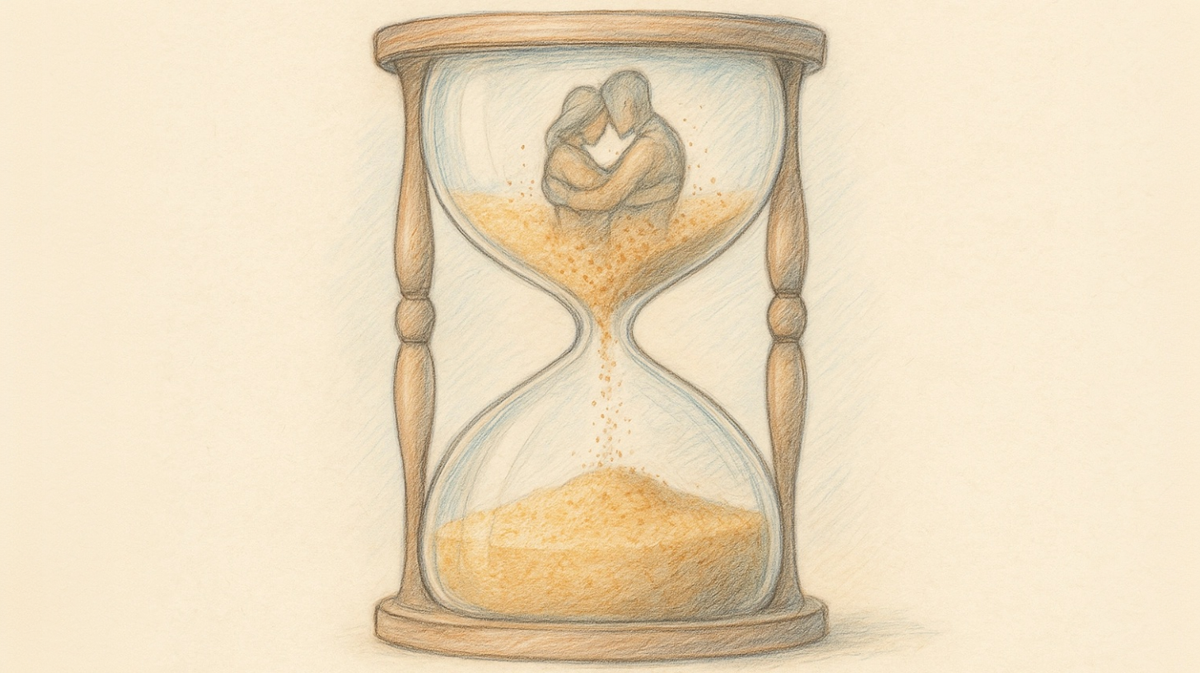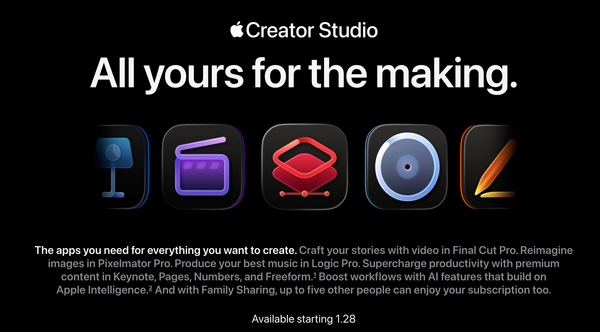What If Relationships Aren't Supposed to Last?
Not all love is meant to last and maybe that’s not a failure, but the point. What if we’ve been measuring relationships by the wrong metric all along?

What If Relationships Aren’t Supposed to Last?
Some people are in relationships right now simply because it feels like the best thing they’ve had so far.
Not great. Not perfect. Just… better than being alone.
Others have given up entirely. They’ve been through the cycle hope, connection, unraveling and now they’ve decided it’s safer to keep love at arm’s length.
Both think they’re doing the rational thing. And maybe they are.
But here’s a thought no one likes to admit:
What if relationships aren’t supposed to last?
What if the entire goal was never about permanence but presence?
What if the people we love simply reflect who we were in that exact moment in time who we needed, who we were trying to be, or who we couldn’t become on our own?
The Foundation: Loneliness Disguised as Love
Loneliness isn’t just feared, it's pathologized.
We treat it like an illness. Something to escape, not understand.
Modern life sells you the idea that to be alone is to be unchosen, undesirable, or broken.
So instead of sitting with ourselves, really sitting with the discomfort of who we are without distraction, we avoid it.
Into some else’s arms.
Into half-baked love.
Into roles we were never ready for.
This is the groundwork that props up most relationships today.
Not desire.
Not growth.
Not even a shared vision. But Fear.
A fear so intense, it convinces people that any relationship is better than none at all.
That something lukewarm is better than risking the cold.
That compromise is closeness.
Even marriages aren’t immune.
They don’t always represent compatibility or deep love.
Sometimes they’re just the final form of avoidance.
Two people riding the same train long after it stopped going anywhere, staying seated because walking away feels like failure.
But longevity isn’t proof of success, it just proves two people didn’t grow fast enough to outgrow each other.
Or worse, one did and chose to shrink.
That’s the harsh truth: many people don’t lose themselves in relationships; they never knew who they were to begin with.
The Two Faces of Modern “Love”
I once met a couple that had been together for six years.
When I asked them what kept it going, one of them laughed and said, “Well, it’s better than starting over.”
I didn’t laugh. Because that’s where we are now.
Relationships today rarely bloom from clarity. More often, they’re responses to discomfort, attempts to cope rather than connect.
And depending on which discomfort you fear most, loneliness or vulnerability, you’ll probably fall into one of two camps.
1. The Settlers: “This’ll Do” Disguised as Destiny
These are the people clinging to what’s available rather than what’s right.
They’re in relationships not because they’ve found their person, but because there’s potential, and they’ve at least found someone.
They believe in love, but mostly in the idea of it.
They latch onto the best they’ve known so far and call it fate, convincing themselves that “good enough” is just a grown-up version of passion.
They aren’t choosing a person, they’re choosing not to be alone.
Settlers live in the past tense.
Their relationships peaked long ago, and everything since has been maintenance.
They might daydream about better, but they won’t pursue it.
The unknown terrifies them more than the few instances of “not enough”.
You’ll hear them say things like, “We’ve been through so much together.” But “through so much” often just means they’ve endured stagnation together, like a storm they never left.
2. The Drifters: Connection Avoidance with Better Branding
These are the ones who say they’re open to love, but never fully step in.
Not because they’re cold, but because they’ve already done the math and don’t like the odds.
Drifters haven’t publicly given up on relationships; they still swipe, date, flirt, and hook up.
But emotionally, they’ve pulled the plug.
They operate from a place of quiet cynicism: “This won’t be it, but I’ll entertain it.”
Unlike the Settlers, who cling to “good enough” and hope for more, Drifters do the opposite.
They’ve become clairvoyant skeptics.
If it doesn’t scream soulmate by week three, they check out.
These are the modern romantics who only love halfway.
The ones who claim they want closeness but flinch when it arrives.
They’ve been hurt, or maybe just disappointed enough times to treat love like a game they can’t win, so they never fully play.
Instead, they build connections through shared pain or mutual convenience.
Maybe both were cheated on.
Maybe they both need someone to travel with.
Maybe they just want a roommate who also happens to kiss them.
It feels meaningful, but often, it’s just well-packaged avoidance.
A clever way to stay close without ever getting too real.
“Situationships.”
“Open arrangements.”
“It’s complicated.”
These aren’t bold new relationship models, they’re repackaged hesitations.
Strategic ambiguity disguised as freedom.
Sometimes, the irony deepens: one person in the duo might be Settler-coded, hoping for something solid, while the Drifter quietly knows it’s going nowhere.
But they stay, because even halfway love feels warmer than the full weight of solitude.
Drifters want intimacy without the mirror.
They want warmth without vulnerability.
It’s not that they don’t crave love; they just don’t trust it anymore.
Why It Breaks Even When It Doesn’t Look Like It Should
Let’s be fair.
If you found the fairytale, the soulmate, the person who just fits from day one, this isn’t aimed at you.
If you’ve been with your childhood sweetheart since the sixth grade and still look at them like it’s the first time, congratulations.
That’s rare. Maybe even sacred.
But for the rest of us? Let’s talk probability.
The odds of stumbling across someone at a random point in your personal evolution and having them match you perfectly, not just in that moment, but through the next forty years of change, is… well, let’s just say, slim.
That’s not pessimism. That’s logistics.
To truly know someone, you need years.
Years to observe them, to live beside them, to watch how they act when life isn’t curated.
You need to travel with them.
Move in.
Watch them fight.
Watch them grieve.
You need to meet their family.
Maybe start building one together.
Let’s call that 5–10 years if we’re being generous.
And if all that goes well? If the storms are weathered, and the good times are real, and nothing breaks the foundation, then sure. Maybe it’s built to last.
But here’s the catch: those 5–10 years are often your youth.
Your defining years. Your becoming.
So even if the relationship holds, what you’re really saying is: “The person I was during my most formative years made the best possible choice, and I’ll stand by that for the rest of my life.”
That’s a heavy bet.
Because you might still have decades ahead of you.
Decades where you grow into someone entirely different, someone your younger self couldn’t have predicted, let alone chosen well for.
And if that growth happens inside a relationship that no longer fits, what then?
Do you clip the wings to stay?
Do you shrink the self to preserve the couple?
That’s the quiet tragedy behind many long-term relationships and even marriages: not that they didn’t work, but that they didn’t grow.
One or both partners either stopped evolving or evolved apart.
And the longer it went on, the harder it became to admit the truth.
No wonder so many people end up confused, bitter, or divorced.
We’ve been chasing permanence in a world built on impermanence.
But maybe that’s not a flaw. Maybe… that’s the point.
Maybe It Was Meant to Be Temporary All Along
We’ve been told that success in love looks like longevity.
Fifty-year anniversaries.
Growing old together.
Till death do us part.
But what if we’ve had the definition upside down?
What if relationships are successful not when they last forever, but when they help us grow into the next version of ourselves?
People evolve.
That’s what we do.
We’re not static.
And sometimes, the person who felt perfect five years ago simply doesn’t fit anymore, not because anyone failed, but because growth naturally separates.
Outgrowing someone isn’t betrayal.
It’s the most honest outcome of two people becoming more of themselves.
Think about the friendships that faded not with resentment, but with quiet understanding.
Or the romances that changed you, even if they ended.
Some taught you how to be loved.
Others taught you what you’d never settle for again. Both were valuable.
Sometimes, we even circle back.
The right person at the wrong time might return at a better one.
But even if they don’t, their impact stays.
If we really zoom out, we can even see this mirrored in history.
Not all cultures held lifelong monogamy as sacred.
Some saw love as a season. A chapter.
A role two people played for a while before life pulled them elsewhere.
We didn’t always try to stretch every connection across a lifetime.
Because in the end, the only person you’re guaranteed to be with forever is yourself.
That doesn’t mean you can’t love deeply.
It means you should love consciously.
Know that the person in front of you may not be your forever.
Love them anyway.
Be a great partner, not out of obligation, but out of presence.
Don’t shrink to make it work. Don’t anchor your identity to theirs.
Grow alongside each other, not into each other.
Best case? It works forever.
Worst case? You part ways better, fuller, wiser.
That’s not failure. That’s the point.
Maybe they were the ones who showed you everything you never knew you needed.
Or maybe they were the ones who showed you exactly what to walk away from.
Either way, you grew.
For better or for worse.



